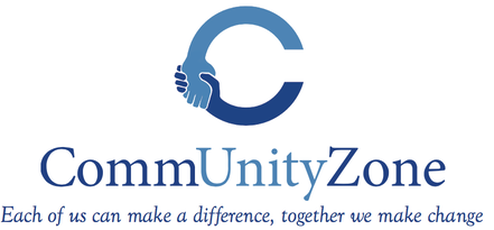|
“Time is money.”
Benjamin Franklin wasn’t actually the originator of this time-honored phrase; while he did include it in an essay, the phrase had already appeared in a newspaper by 1719. 300 years later, I think most of us are still familiar with the basic concept of the phrase – at least, to some extent. It’s a sort of Puritan idea in its original intent: Because you could be making money with your time, any time when you aren’t making money amounts to money lost. The phrase was intended to be a warning against laziness and idleness, two of the greatest common sins that could be committed in the work-centered culture of the early American colonies. The rooting in that time and setting is obvious, along with the assumptions it makes about working, payment, and the importance and virtue of making money. In our modern world, we tend to use the same phrase in a different context, and with a bit less strict of a meaning. Our focus is less on the idea of actively losing money by not working, and more on the importance of efficient use of time. In a world of hourly wages, every minute counts towards that paycheck. With the breakneck pace of a digital world, everyone is constantly striving to have the fastest turnaround time, the quickest marketing, the narrowest gap between a need arising and meeting that need – with accompanying payment, of course. When time is money, there’s no time to waste. No time for frivolous pursuits like entertainment or relaxation; no time for slower efforts or second checks or anything less than the most efficient options; maybe no time even for volunteering or any labor that doesn’t receive the best compensation it could. But what if we could take a less cynical and miserly approach to that same idea? It’s an irrefutable fact that modern American culture is still largely founded on ideas that were brought here in our nation’s infancy. Ideas of society and how it should operate came across the sea, carried by the colonists who dared to leave their homes for a New World. As the colonies of North America were formed and shaped, those ideas were tested and adapted as well. As the United States began its westward expansion, new ideas were formed as well, either brought by new waves of immigrants, learned from native populations, or shaped wholesale from the experiences that settlers had as they spread from Atlantic to Pacific. Throughout all this time, though, and amid all the many swirling cultures and experiences that shaped the ever-changing and myriad ideas of American society, one thread has remained clear. The average American concept surrounding work and money, especially in the northeastern region of our country, is very much rooted in the beliefs that the early New England settlers had. They’re the old Puritan and Quaker values about an honest hard day’s work. Ben Franklin, himself having lived throughout the New England and Mid-Atlantic colonies, did an admirable job of collecting, cataloguing, and creating many of the common sayings and aphorisms that summarize those feelings (although many have been changed over time, or misattributed). “A penny saved is a penny earned” – Don’t waste your money, because it’s twice as valuable if you save it for when you need it later. “Early to bed, early to rise, makes a man healthy, wealthy and wise” – Getting proper rest is important, so you can be productive and proper in your waking life. “God helps them that help themselves” – Prayer and religion were central to the life of many colonists, but even God didn’t hand out charity or help anyone for free. And, of course, “Time is money.” But even with such a clear focus on the all-important work day, it’s clear that early American colonists weren’t purely concerned with earning money, and neither were generations that came after them. We have countless anecdotes and stories and accounts of charitable endeavors by individuals and communities to help one another. Someone’s house or barn is destroyed or damaged, and the whole town pitches in to help with repairs or raise a new structure. A farmer doesn’t have enough hands to bring in the harvest, so his neighbors help to make sure all the crops are brought in. And more recently, there are so many records of neighbors and community members looking after their own. The so-called “penny auctions” of the Great Depression are one of the most famous and recognizable movements of this kind: whole towns would come together to buy foreclosed properties for ridiculously low prices from the banks, only to turn around and return them to the original owners, so they could continue living in their homes. So even if time is money, it can’t be as simple as a conversion from minutes or hours to dollars and cents. Our communities have always been built around supporting one another: you give time and effort into the community, because the community will give that time and effort back to you. “Time is money” doesn’t have to mean a relationship between time spent and money earned; it can be about time itself as a sort of currency, one that can be exchanged back and forth for goods and services. It seems like an almost foreign concept in a modern world that often feels so impersonal and so obsessed with chasing the dollar – and yet, now more than ever, that idea seems to be making a comeback. It’s the idea behind time banks: community-driven organizations for the exchange of time itself as a unit of “currency” between members. Put time in by contributing to the community with skills you already have; get time out from other members by requesting services they can already offer. One member might offer music lessons for someone else, meeting with them for an hour or two on whatever schedule might work for them. In exchange, they use those hours to request that someone help them with yardwork, or house cleaning. The person who helps with that work uses the hours they earned to get a babysitter. And the whole community can come together for a potluck dinner, all earning and spending their hours to have a great meal and an evening of togetherness. Normally, you’d think of all those activities as ones driven by the dollar economy. You pay for the music lessons; you hire someone for the yardwork; you pay the babysitter; you spend for a night out at a restaurant. But thanks to the time bank, none of the members had to spend any money. In this case? “Money is time.” If you’re interested in joining our community’s very own time bank, the Susquehanna Valley Time Bank, make sure to visit our website’s page: https://www.communityzonelewisburg.org/timebank.html From there, you can join the time bank and take part in this exciting opportunity to give and receive as part of the community.
1 Comment
Cynthia A. Peltier
7/2/2021 09:00:14 am
Well done Brian. You are doing a spectacular job on this blog.
Reply
Leave a Reply. |
Authorship
The CommUnity Zone blog features stories and updates from all the team members and other locals. Archives
May 2024
Categories |
Location |
|

 RSS Feed
RSS Feed
